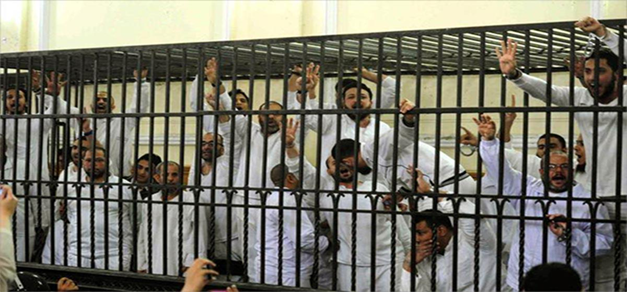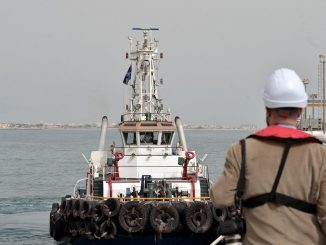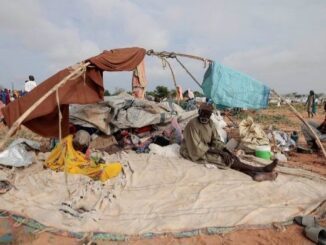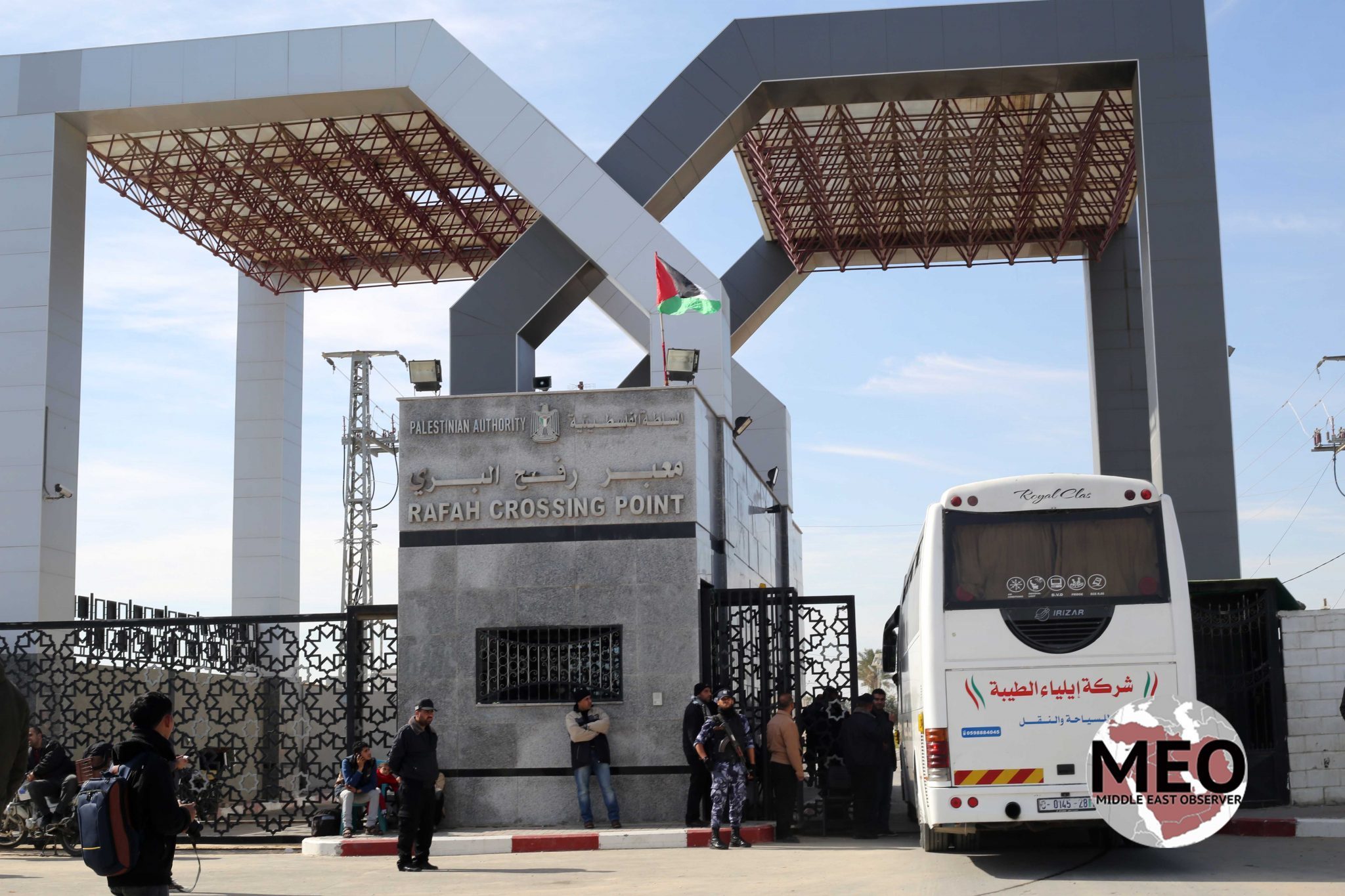
Activists and environmentalists have expressed alarm over Egypt’s ability to host the event successfully because of its poor record on human rights. They signed a letter, in which they detailed their concerns about holding Cop27 in Egypt, demanding that the Egyptian authorities free thousands of political prisoners and prisoners of conscience.
A hundred days before the Cop27 summit is due to start in Sharm el-Sheikh, a group of environmentalists and activists have expressed alarm over Egypt’s ability to host the event successfully because of its poor record on human rights, as thousands of prisoners of conscience remain behind bars.
Naomi Klein, Bill McKibben and the Green party MP Caroline Lucas are among those who have signed a letter detailing their concerns about holding Cop27 in Egypt, and demanding that the Egyptian authorities free thousands of political prisoners and prisoners of conscience.
“We are deeply concerned that [a successful conference] will not be possible due to the repressive actions of the Egyptian government,” they said. “Indeed, it seems more likely at this point that the conference will be used to whitewash human rights abuses in the country.”
While Egypt has pledged to allow protests at the summit, albeit in a dedicated area separate from the talks themselves, Egyptian rights activists have increasingly expressed fears that demonstrators and civil society will face danger in expressing their right to protest, particularly those from Egypt and the global south.
Signatories said Egypt freeing prisoners of conscience would show that it was taking seriously its commitment to holding Cop27. “If Cop27 is to succeed, the visibility and positive pressure created by civic mobilization will be vital – that must include full rights to freedom of assembly, association, and expression around the conference,” they said.
Other potential Cop27 participants, including advisers to the White House, climate activists and rights groups, have also spoken of their fears that hosting the vital talks in Egypt amid the country’s crackdown on civil liberties will render the conference ineffective, particularly in a moment when the world faces increased pressure to act on global warming.
Since coming to power in a military coup in 2013, Egypt’s Abdel-Fatah al-Sisi has overseen a broad crackdown on human rights, targeting all potential political opposition, domestic and foreign media and civil society. The Arabic Network for Human Rights Information estimates there are at least 65,000 political prisoners in Egypt’s jails.
The letter echoes concerns from a coalition of 21 rights organizations including Amnesty International and the Cairo Institute for Human Rights Studies about Egypt’s suitability to host the summit.
“Thousands continue to be arbitrarily detained in Egypt for peacefully practicing their rights to freedom of expression, assembly and association. This includes staff of Egyptian independent civil society organisations, human rights defenders and activists in the field of economic, social and cultural rights, and minority rights, as well as lawyers, journalists, academics, women social media influencers and artists,” they said.
Signatories also drew particular attention to the case of the jailed British-Egyptian activist Alaa Abd El Fattah, now on hunger strike for 119 days inside a desert prison north of Cairo. Abd El Fattah has spent much of the past decade behind bars, notably in 2014 for organizing demonstrations against a law effectively banning protest.
Last year, the activist, who is considered one of the figureheads of Egypt’s 2011 revolution, was sentenced to a further five years on terrorism charges for sharing a social media post about torture in a detention center.
“Prominent British-Egyptian activist and blogger Alaa Abdel Fattah, on hunger strike for over 100 days and at risk of death, must be prioritized,” they said.
The Egyptian authorities and the British foreign secretary, Liz Truss, are under pressure to act on Abd El-Fattah’s case given the advanced stage of his hunger strike. The 40-year-old activist was also held incommunicado for five days this week, and his family say he has previously been targeted for abuse while in detention.
“It’s hard to imagine that any significant progress can be made towards climate justice at a conference hosted by one of the world’s most repressive regimes, whose prisons are full of its brightest thinkers, youth activists and defeated idealists,” said Abd El Fattah’s sister, Sanaa Seif.
Seif also expressed concerns that members of the international climate justice movement arriving in Egypt to attend Cop27 will be unable to meet local activists or partners “because they are either in prison or will be banned from even crossing into Sinai to attend”.
She added: “The very least the international climate justice movement can do is make the Sisi regime pay a price for this greenwashing charade and release the thousands of prisoners of conscience it holds in its cells.”
The letter signed by environmentalists and activists detailing their concerns about Egypt’s poor human rights record:
100 Days to COP27: Climate Groups Sound the Alarm
If COP27 is to succeed, the visibility and positive pressure created by civic mobilization will be vital – that must include full rights to freedom of assembly, association, and expression around the conference, including for Egyptian civil society activists and journalists who are currently facing harsh repression for exercising these human rights.
But with only 100 days to go now until COP27 begins in Sharm el-Sheikh, Egypt, we are deeply concerned that this will not be possible due to the repressive actions of the Egyptian government. Indeed, it seems more likely at this point that the conference will be used to whitewash human rights abuses in the country.
We join a recent call by 21 human rights organisations to state that: “We are alarmed at the Egyptian authorities’ unlawful restrictions on the rights to freedom of the press, of expression, association, and peaceful assembly, the severe constraints they have imposed on civil society, as well as their repression of peaceful political opposition and misuse of counterterrorism legislation to silence peaceful critics. Thousands continue to be arbitrarily detained in Egypt for peacefully practicing their rights to freedom of expression, assembly, and association. This includes staff of Egyptian independent civil society organizations, human rights defenders and activists in the field of economic, social, and cultural rights, and minority rights, as well as lawyers, journalists, academics, women social media influencers and artists.”
We echo all of the calls to action set out by the human rights organisations in their statement, including immediately and unconditionally releasing all those detained for practicing their rights to freedom of expression, according to Egypt’s obligations under international law. This would signal that the Egyptian government is committed to ensuring that participants at COP27 may speak and assemble freely at the COP27 conference, without fear of reprisals. Prominent British-Egyptian activist and writer Alaa Abdel Fattah, on hunger strike for over 100 days and at risk of death, must be prioritized.
We call upon all of our climate envoys and political representatives to press with all urgency for these conditions to be met
SIGNATORIES:
Mary Church, head of campaigns interim co-director, Friends of the Earth Scotland
Sean Currie and Benedetta Scuderi, co-spokespeople of the Federation of Young European Greens (FYEG)
Mike Davis, executive director, Global Witness
Nick Dearden, director, Global Justice Now
Fiona Dove, executive director, Transnational Institute
Della Duncan, co-director, Upstream Podcast
Miatta Fahnbulleh, CEO, New Economics Foundation
Chris Garrard, co-director, Culture Unstained
Frances Guy, CEO, Scotland’s International Development Alliance
Claire Hanna, Social Democratic and Labour Party MP
Louise Hazan, co-founder, Tipping Point UK
Oli Henman, global coordinator, Action for Sustainable Development
Wera Hobhouse, Liberal Democrat MP
Fatima Ibrahim, co-director, Green New Deal Rising
Tessa Khan, director, Uplift
Naomi Klein, University of British Columbia Professor of Climate Justice
Hugh Knowles, co-executive director, Friends of the Earth England, Wales and Northern Ireland
Mathew Lawrence, director, Common Wealth
Clive Lewis, Labour Party MP
Caroline Lucas, Green Party MP
Bill McKibben, co-founder 350.org and Third Act
Ellie Mae O’Hagan, director, CLASS think tank
Brendan Montague, editor, The Ecologist
Robert Noyes, co-director, Platform
Rhiannon Osborne, Co-Coordinator, The People’s Health Movement UK
Annie Pickering, co-director, Climate Emergency UK
Asad Rehman, executive director, War on Want
John Sauven, former executive director of Greenpeace UK
James Smith, co-director, MedAct
Fionna Smyth, head of global advocacy and policy, Christian Aid
Zarah Sultana, Labour Party MP
Mandeep Tiwana, chief programmes officer, CIVICUS
Annie Tourette, head of advocacy, Blue Ventures
Susie Ventris-Field, chief executive, Welsh Centre for International Affairs / Canolfan Materion Rhyngwladol Cymru
Max Wakefield, co-director, Possible
Nadia Whittome, Labour Party MP



